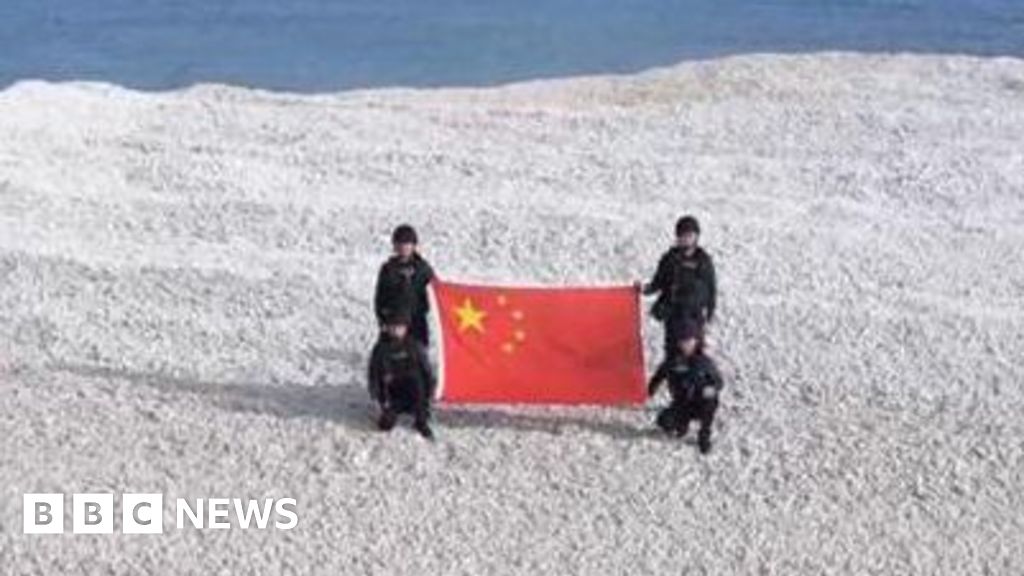Beijing's Control of Tiny South China Sea Sandbank Sparks Tensions
Beijing's increasingly assertive control over a minuscule South China Sea sandbank, Whitsun Reef (中国,牛轭礁), is escalating tensions with its neighbours and reigniting concerns about regional stability. This seemingly insignificant piece of land, barely visible at high tide, holds significant strategic and symbolic value for China, fueling a complex geopolitical game.
A Tiny Sandbank, A Giant Dispute
Whitsun Reef, located within the Philippines' exclusive economic zone (EEZ), is just one of many features claimed by China within the disputed South China Sea. While China maintains it's a traditional fishing ground, its recent actions, including the deployment of a large number of fishing vessels, are viewed by many as a blatant attempt to solidify its claim and exert pressure on neighbouring countries.
The recent deployment is not an isolated incident. China has steadily increased its presence in the region, building artificial islands, deploying military assets, and ignoring international arbitration rulings that invalidate its expansive claims based on the "nine-dash line." This aggressive posture undermines international law and the established maritime order.
The Philippines' Response and International Condemnation
The Philippines, which has long-standing claims to Whitsun Reef, has vehemently protested China's actions. Manila has lodged diplomatic protests and called for China to respect international law and the UN Convention on the Law of the Sea (UNCLOS). Other countries in the region, along with the United States and its allies, have also expressed their concern, highlighting the destabilizing impact of China's actions.
- Diplomatic Pressure: The Philippines, supported by its allies, is leveraging diplomatic channels to pressure China to withdraw its vessels and respect the Philippines’ sovereign rights.
- International Condemnation: The international community is increasingly voicing concerns over China’s disregard for international law and the potential for further escalation in the South China Sea.
- Military Posturing: While not directly confronting China militarily, the US and its allies are increasing their naval presence in the region as a show of force and commitment to regional stability.
The Strategic Implications
The control of Whitsun Reef, despite its diminutive size, has significant strategic implications:
- Control of Fishing Grounds: The sandbank is situated within rich fishing grounds, crucial for the livelihoods of many Southeast Asian nations. China's control limits access for other countries.
- Maritime Access: The reef's location affects maritime navigation routes, potentially impacting trade and regional connectivity.
- Military Advantage: The potential for militarization of the sandbank poses a threat to regional security and increases the risk of conflict.
What's Next?
The situation remains tense, with the potential for further escalation. The international community must remain vigilant and continue to pressure China to adhere to international law. The long-term implications for regional stability and the rule of law hinge on the resolution of this ongoing dispute. The focus remains on diplomatic solutions, but the potential for further conflict remains a significant concern.
Keywords: South China Sea, Whitsun Reef, China, Philippines, territorial dispute, nine-dash line, UNCLOS, maritime security, regional stability, geopolitical tensions, international law.
Call to Action: Stay informed about developments in the South China Sea by following reputable news sources and engaging in informed discussions about the implications of this ongoing conflict. Understanding the complexities of this issue is crucial for promoting peace and stability in the region.

